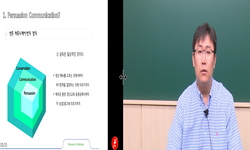현대 사회에서의 교육은 학습 과정에 능동적으로 참여하고, 비판적 성찰을 통해 자신의 학습 과정을 지속적으로 관찰하며 학습 내용뿐만 아니라 학습하는 방법을 아는 학습자를 기르는 것...
http://chineseinput.net/에서 pinyin(병음)방식으로 중국어를 변환할 수 있습니다.
변환된 중국어를 복사하여 사용하시면 됩니다.
- 中文 을 입력하시려면 zhongwen을 입력하시고 space를누르시면됩니다.
- 北京 을 입력하시려면 beijing을 입력하시고 space를 누르시면 됩니다.
수업일기 쓰기 활동이 국어 학습 능력 및 태도에 미치는 영향 = Changes in academic achievements, reading abilities, and writing attitudes after writing the class-diary
한글로보기https://www.riss.kr/link?id=T11983969
- 저자
-
발행사항
청원군 : 한국교원대학교 교육대학원, 2010
-
학위논문사항
학위논문(석사) -- 한국교원대학교 교육대학원 , 국어교육학과 국어교육전공 , 2010. 2
-
발행연도
2010
-
작성언어
한국어
- 주제어
-
발행국(도시)
충청북도
-
형태사항
vi, 86 p. ; 26 cm
-
일반주기명
한국교원대학교 논문은 저작권에 의해 보호받습니다.
지도교수 : 박영민
참고문헌 : p.60-61 - 소장기관
-
0
상세조회 -
0
다운로드
부가정보
국문 초록 (Abstract)
현대 사회에서의 교육은 학습 과정에 능동적으로 참여하고, 비판적 성찰을 통해 자신의 학습 과정을 지속적으로 관찰하며 학습 내용뿐만 아니라 학습하는 방법을 아는 학습자를 기르는 것이 주요한 목표이다. 학생들에게는 자신의 학습 능력과 흥미를 향상시킬 수 있는 피드백이 필요하고, 교사들은 학생의 학습 개념 이해와 수업 내용의 숙달 정도, 학생들이 흥미를 느끼는 부분이나 동기를 유발시킬 수 있는 학습 내용과 방법을 파악할 수 있는 근거 자료가 필요하다. 그럼에도 불구하고 실제 수업 시간 내에 이루어지는 교사와 학생들 간의 의사소통 방법은 개별적이라기보다는 전체를 대상으로 하는 질의응답의 형식으로 이루어지는 경우가 대부분이다. 이러한 방법은 학생 개개인의 개인차를 확인할 수 없으며 그로인해 개별적인 학업 수준이나 정서를 파악하기가 어렵고 학습자의 능동적인 활동이 이루어지지 못하여 수업에 대한 흥미를 잃기가 쉽다.
이에 본 연구에서는 국어 수업을 마치고 학습자가 수업 시간에 공부한 과정과 내용을 학습 일기 형식으로 정리해 보는 것이다. 수업 일기를 꾸준히 쓰면 학생 스스로 학습한 내용이 머릿속에 체계화 되고, 무엇을 아는지 모르는지, 잘못 알고 있는 것이 무엇인지 스스로 점검하는 능력이 향상된다.
국어 수업을 통해 이루어지는 작품의 감상, 글쓰기, 토론하기, 국어 지식 습득 등 여러 가지 국어 교육 과정을 정리하는 글쓰기를 통해 국어 학습 능력을 높여주고, 또 새로운 작품을 만났을 때 어떤 느낌이 들었는지 새로운 작가를 알게 되었을 때 무엇이 궁금했는지, 본 수업 시간에 대한 특별한 감상 등을 기록하게 하여 국어 학습에 대한 학습자의 태도 변화를 가져올 수 있을 것이라는 기대감에서 본 연구를 시작하였다.
본 연구는 수업일기 쓰기의 국어 학습 능력 및 태도에 미치는 효과 검증을 목표로 삼았다. 따라서 일반적인 수업 상황과 유사한 실험 상황을 설정한 후, 중학교 2학년 남학생들을 대상으로 국어 수업 후 수업일기 쓰기 활동을 실시한 후의 학업 성취도와 독서 능력, 문학 태도, 쓰기 태도의 변화를 알아보고 수업일기 쓰기 활동에 대한 학생들의 반응을 관찰하였다.
Ⅱ장은 본 연구의 이론적 배경이다. 수업일기의 개념과 의의를 정리하고 쓰기와 학습의 연관성, 메타인지의 개념과 효과를 논의하면서 수업일기 쓰기 활동이 학습능력 및 학습동기, 교과 흥미 향상에 미치는 영향을 인지 학습 이론의 관점에서 살펴보았다.
Ⅲ장에서는 연구 방법과 수업일기 쓰기 활동의 과정을 상술하였다.
본 연구의 연구 대상은 중학교 2학년 두 개 반 70명이다. 실험 집단 35명에게 14주 동안 수업일기 쓰기 활동을 실시하였다. 검사 도구는 총 5종으로 국어학업 성취도 검사, 독서 능력 검사, 문학 태도 검사(동기, 흥미 영역), 쓰기 동기 검사, 국어 수업일기 쓰기에 대한 반응 질문지였다.
Ⅳ장에서는 연구 결과를 분석하고 연구의 의미에 대해 논의하였다. 연구 결과 수업일기 쓰기 활동을 통해 국어 학습 능력과 독서 능력 향상에 긍정적인 효과가 있었으며, 문학 태도에 대한 흥미도 높아졌다. 학급자의 반응 역시 수업일기 쓰기 활동에 대해 긍정적으로 나타났고 필요성을 느끼는 비율도 높았다.
이는 수업일기 쓰기 활동이 학생 스스로 새로운 지식을 찾을 수 있는 수업 분위기를 조성하여, 수동적으로 받아들이기만을 반복하는 수업이 아니라 이미 밝혀진 수업이지만 학생에게 자신이 지식을 발견했다는 기쁨과 함께 지식을 찾고자 하는 욕구를 불어넣어 줌으로써 지식 생성 과정에서 발생되는 오류를 잡아줄 수 있는 프로그램임을 시사한다.
마지막으로 Ⅴ장에서는 실험 결과에 따른 결론을 내리고 연구의 한계와 제언을 정리하였다. 수업일기 쓰기 활동을 통해 국어 학습능력과 독서 능력을 신장시키고 교사의 답 글을 통해 학생들의 오 개념을 수정하고, 학습 동기를 북돋아 주며 교사와 학생 상호간에 의사소통으로서의 글쓰기가 이루어질 수 있도록 토대를 구축하는데 적극적인 관심을 가져야 하겠다.
다국어 초록 (Multilingual Abstract)
In modern society, the main purpose of the education is to train learners who positively participate to the courses, incessantly observe their learning process through the critical introspection, and how to learn as well as the contents. Learners need...
In modern society, the main purpose of the education is to train learners who positively participate to the courses, incessantly observe their learning process through the critical introspection, and how to learn as well as the contents. Learners need a feedback that can enhance their learning ability and interests. Also instructors need reasonable evidences which can grasp learners' understanding of the general ideas and study contents that motivate learners' interests. Nevertheless, in fact, most communications between learners and instructors in class consist of question-answering forms for the whole rather than for the individuals. This way cannot hold each learner's differences; therefore it is not only difficult to grasp the differences of learner's study-level but also easy for learners to lose their interests in classes.
In this research, a learner organizes the process and contents of the study as a diary form after the Korean class. Constant writing class-diary enhances the students' ability to examine what they know and what they do not know by themselves and systematizes the contents they learned.
This research started based on the expectation that it would raise the learning ability through organizing several language courses including appreciation of the works, writing , discussion and acquisition of linguistic knowledge and that it would cause some changes in learners' attitudes making them report what they felt and wondered when they faced now works or writers and write down their own impressions on the class.
I made it the purpose of this research to verify the class-diary's effects on the studying ability and attitude. Therefore, experimenting with 2nd-year-middle school students in the similar situation with the ordinary classes, I found out the changes in academic achievements, reading abilities, and writing attitudes after writing the class-diary and observed the responses of the learners to the activity.
Chapter Ⅱ is the theoretical background of this research. I saw the effect of the class diary on the increase of the interests in course, studying ability and motive arranging the concept and significance of the class-diary from the viewpoint of the cognitive theory and discussing the relationship between writing and studying.
In chapter Ⅲ, I gave a full account of the way of experiment and the process of the writing class-diary. The subjects of this experiment were 70 students of 2nd year middle school in two classes. I made 35 members of them write the class-diary for 14 weeks. Experimenting tools were five: that is, examination of academic achievement, reading-ability, test of attitude for the literature(motive, interests), and motive of writing and questionnaire of the response to the class-diary.
In chapter Ⅳ, I analyzed the results of the experiment and discussed the meaning of the experiment. There was positive effects on the rise of the learning and reading ability and the interests in the literature were increased, too. Also, the response of the learners was affirmative and the rate of students who feel the necessity of the activity was high.
This proves that creating an ambience that learners can find out new knowledge themselves, inspiring the pleasure of looking for facts by themselves and desiring to discover knowledge, class-diary can correct the errors made in the process of acquiring knowledge.
Finally, in the chapter V, I got to a conclusion according to the results of the experiment and arranged the limitation of the experiment and the suggestion. We should have active concern to increase the learning and reading ability through writing class-diary, to correct the learners' misconceptions through teacher's model-writings and to construct a foundation that causes students to write as a communication between learners and their teacher.
목차 (Table of Contents)
- Ⅰ. 서론 1
- 1. 연구의 필요성 및 목적 1
- 2. 선행 연구 검토 3
- 3. 연구 문제 및 제한점 5
- Ⅱ. 이론적 배경 7
- Ⅰ. 서론 1
- 1. 연구의 필요성 및 목적 1
- 2. 선행 연구 검토 3
- 3. 연구 문제 및 제한점 5
- Ⅱ. 이론적 배경 7
- 1. 학습일지의 개념 및 유형 7
- 2. 학습방법으로서의 쓰기와 학습 11
- 3. 메타인지 15
- Ⅲ. 연구 방법 18
- 1. 연구 대상 및 기간 18
- 2. 연구 설계 및 연구 절차 20
- 3. 검사 종류 및 분석 도구 22
- 4. 지도과정 25
- Ⅳ. 연구 결과 및 해석 43
- 1. 인지적 측면 43
- 2. 정의적 측면 51
- Ⅴ. 결론 57
- 참고문헌 60
- 영문초록 62












